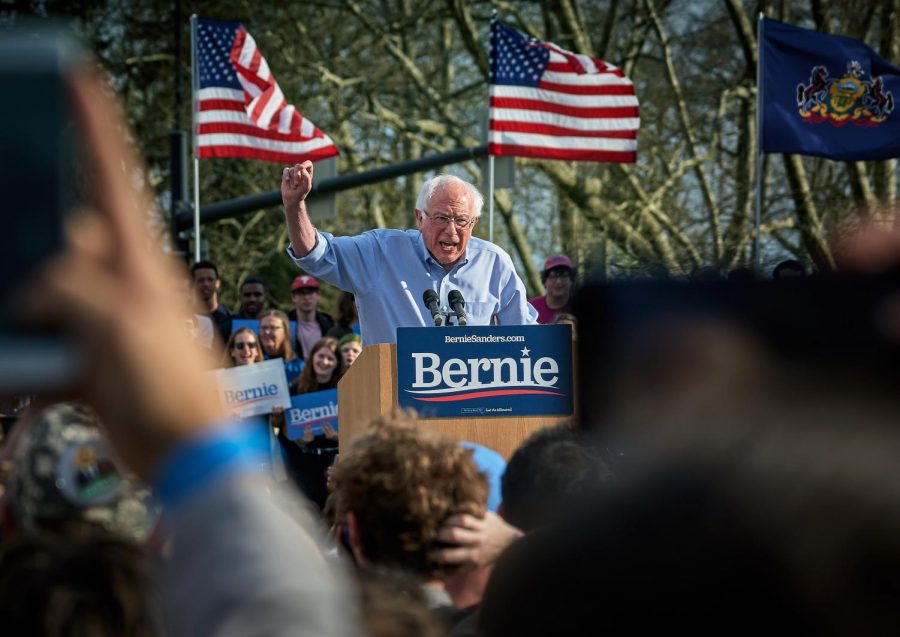There are few greater tortures on this earth than social media during an election season.
Platforms like Twitter and Reddit seem to have the capacity for rational discussion to devolve into chaos. Some of this chaos is stoked by foreign interference and trolling, but a lot of it seems to me we’ve just forgotten how to argue logically, and eventually, we argue over nothing.
One of the best ways to see irrational, fruitless arguments is to look for the words “capitalist” or “socialist.” I’ve seen people assume capitalism is synonymous with greed too many times to count. Whenever the latest story of misconduct by wealthy corporations break, it prompts a wave of cynical comments claiming that is the reality of a capitalist system.
While it’s technically true that private companies are capitalist, when people associate these abuses with the word capitalism, any politician who wants to preserve a capitalist system suffers from that connotation. This could be the case even if that politician wants to regulate corporations.
This problem is even more egregious with the word socialist because the instinct for many who don’t like socialism is to compare American Democratic Socialism to the socialism of the USSR. The word has become so watered down that even policies that Democratic Socialists generally don’t promote, like the Affordable Care Act, have been referred to as socialist.
President Donald Trump called the entire Democratic field socialist when the majority aren’t whatsoever. When implementing any new government policy is considered socialist, it not only makes arguing policy on its merits frustrating, it backfires and makes more people view socialism favorably.
So if capitalism isn’t companies doing bad things, and if socialism isn’t the government doing stuff, what do these words actually mean?
Capitalism, simply put, is when private citizens control industries rather than the government. Socialism is when the government has control over industries. These are general definitions, because the words have applied to so many movements over the past few centuries.
The problem with these general definitions is that they can be tough to apply in the context of politics today. There’s no such thing as a pure capitalist or socialist right now. Not even Donald Trump leaves markets entirely on their own. He’s subsidized farmers and enacted tariffs as an attempt to manipulate the market, for example.
Being capitalist is more about priorities. Especially in the Democratic primary, where the candidates share a lot of their values. If the candidate thinks it’s better to craft policy to shape the market to desirable outcomes, they’re a more capitalist Democrat. If the candidate thinks it’s better to use the government to serve the people directly, they’re more of a socialist. Both groups generally don’t believe in central planning and think the government should fund social programs.
A good place to see this divide between presidential candidates the issue of housing. Senator Amy Klobuchar, who is more moderate, wants to reform the housing voucher system as well. She also wants to make it easier for low-income people to move into “high opportunity neighborhoods,” and get rid of outdated zoning laws in order to increase the supply of affordable housing.
Trump’s White House council for affordable housing believes the solution to homelessness lies in deregulation and policing, but they’re skeptical of the Housing First ideals commonplace in housing policy circles. Housing First means prioritizing getting the chronically homeless into housing before addressing the factors behind their homelessness. The Trump administration believes that Housing First can backfire and lead to more homelessness, citing research by associate professor at the University of Minnesota Maria Hanratty. But Hanratty told CityLab that Housing First is important to ease costs on other government-run programs like emergency services and jails.
Both Klobuchar and Trump’s willingness to deregulate could be effective in tackling the issue. A study for the Mercatus Center at George Mason University showed that land-use regulations reduce the supply of housing and increase housing costs and that reforming or removing these regulations can lead to more affordable housing.
Even though they have a commonality in this area, Trump would still call Klobuchar a socialist. At a campaign rally in June, Trump said, “A vote for any Democrat in 2020 is a vote for the rise of radical socialism.”
The debate on economics is further distorted because people vote based on how the candidate makes them feel. A TIME article by Charlotte Alter made the case for a tonal divide being more important than the ideological battle in the primary.
Saturday Night Live parodied Warren’s tendency to use, and perhaps overuse, the word “fight.” The word is a cornerstone of her campaign messaging and featured in one of the defining moments of the July 30 Democratic presidential primary debates.
Warren-style, and to a greater extent Sanders-style, populism constructs a narrative of the villainous wealthy and powerful vs the everyday American. The problems of America are because of Big Pharma, or insurance companies, or corporations, or billionaires. Then, they paint themselves as the saviors of the people, who will fight the elites for a better America.
Their supporters would be the kind to synonymize capitalism with greed. Less so with Warren, because she has repeatedly called herself a capitalist, but this is the reason behind arguments that boil down to “you don’t support my candidate, and therefore, you’re a shill for the billionaires.”
Trump contributes to the rampant overuse of indiscriminate accusations by referring to anything he doesn’t like with the word “socialism.” To him, Venezuela is socialist, along with open borders and every Democrat running for president. Trump’s statements prove absurd because open borders imply the absence of government enforcement. If anything, deporting undocumented workers is socialism since it interferes in a market.
Trump uses the word “socialism” erroneously to capitalize on emotion. According to a Pew Research Center poll, 84 percent of Republicans have a negative view of socialism and Trump is appealing to fear in his base.
In no way do I claim it is wrong to support a candidate because of their tone or emotion. In fact, I think it would be ridiculous to support a candidate you think is immoral or uncharismatic if there’s a clear better option. But when advocating for a person or position on social media and beyond, I think it’s equally ridiculous to use blanket accusations rather than doing your research.
I’m not saying you have to engage obvious trolls or bigots. But I’m asking that we all try not to be the those people. The next time you discuss politics, think to yourself. Are you seriously considering the other argument and giving honest criticisms, or are you taking the lazy way out?




